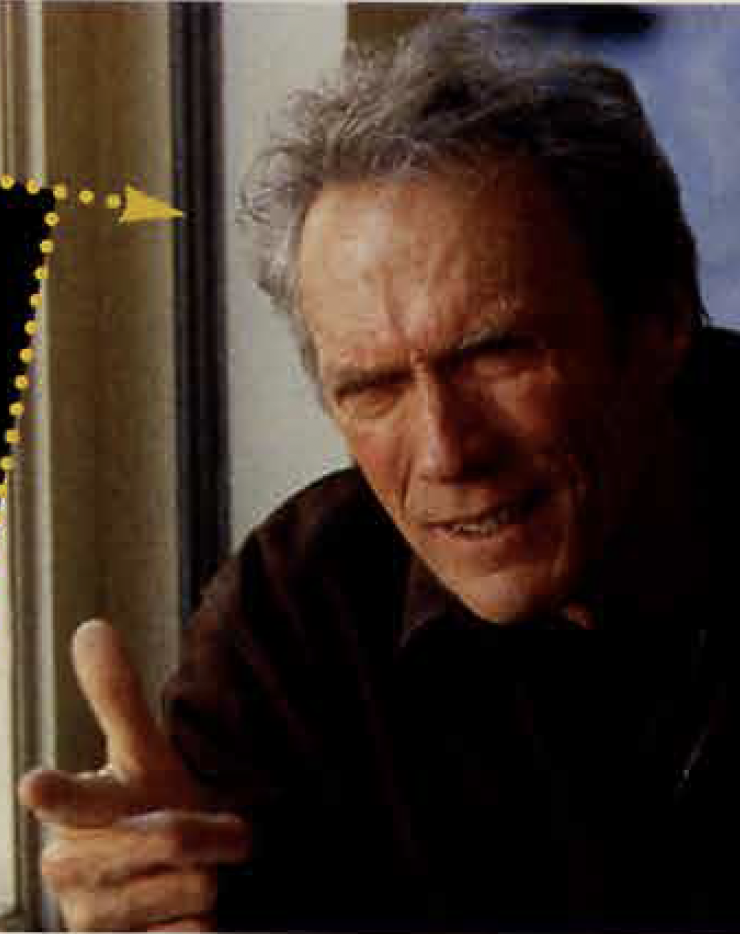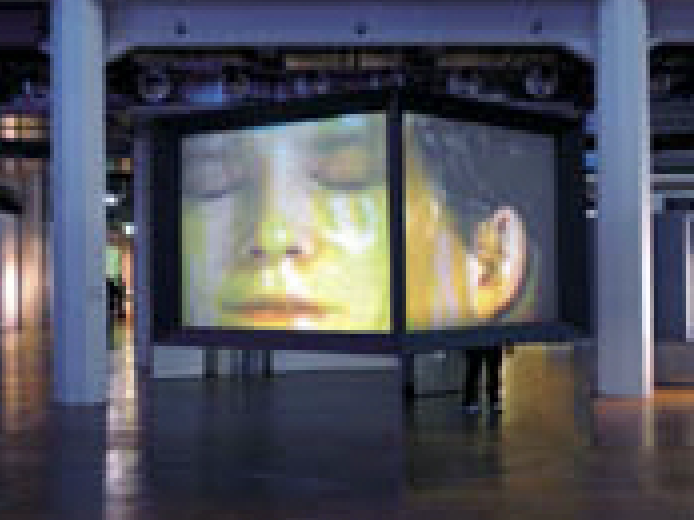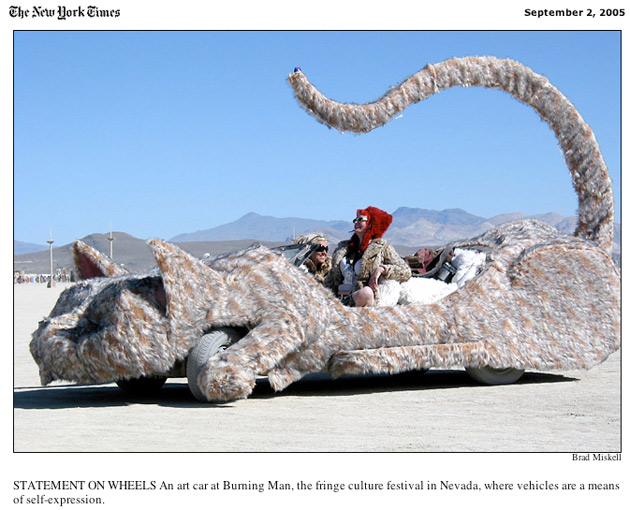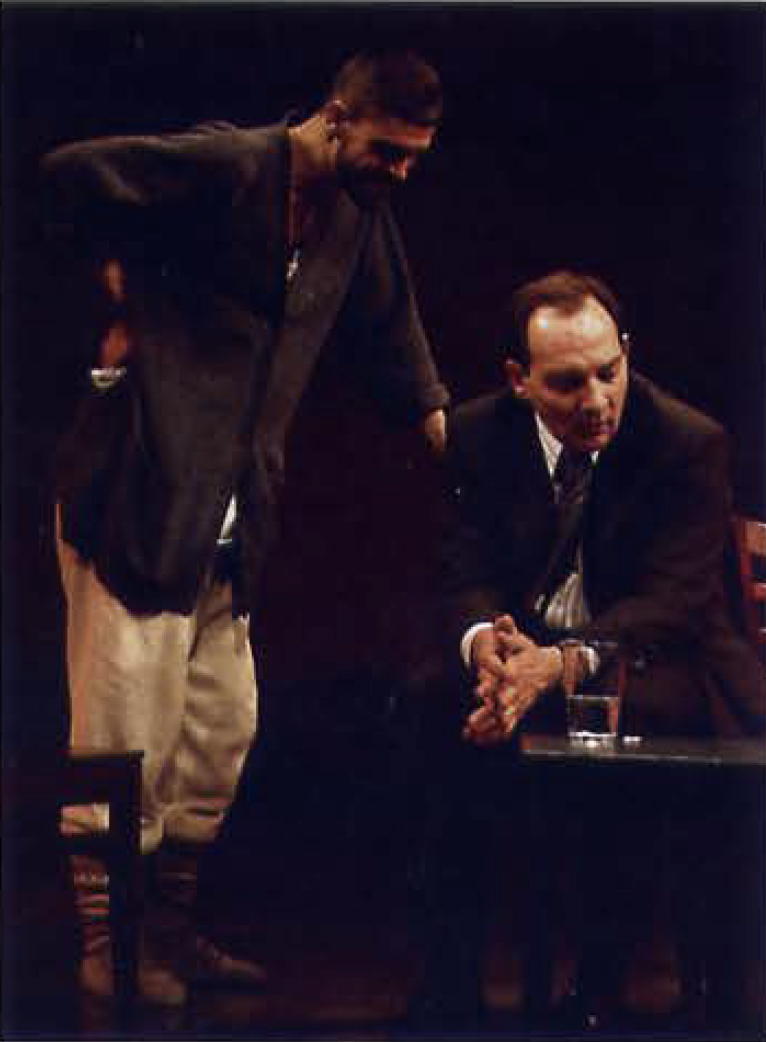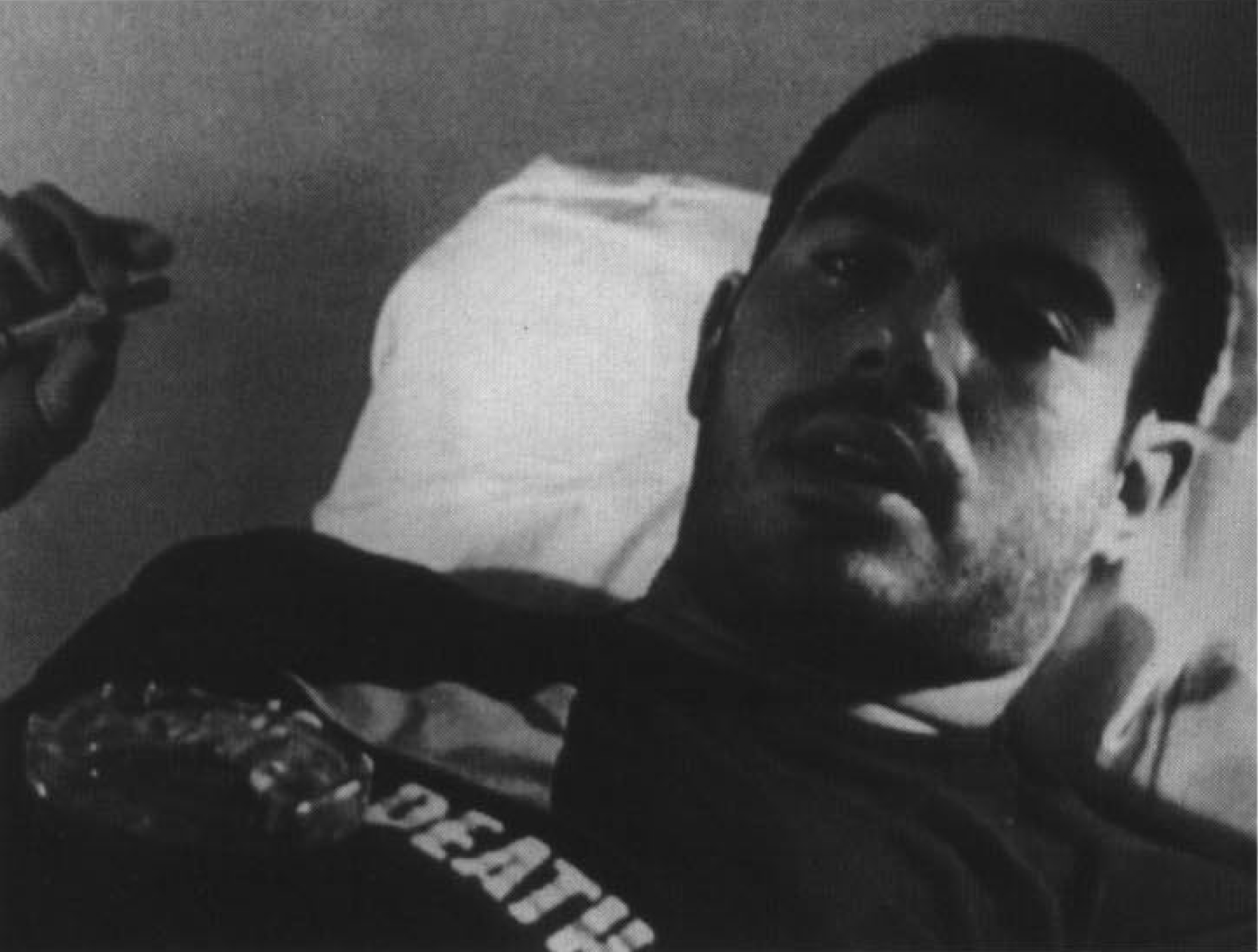You’re a writer. You’ve spent months, even years, slaving away in solitude to transform a great idea into a Great American Novel. And you’ve succeeded. Critics love it. Readers love it. Hollywood luuuvs it and proves just how much by forking over megabucks for the screen rights.
The famously fine line between the sublime and the ridiculous came to mind while viewing Judith Barry’s recent exhibition at Rosamund Felsen Gallery in Santa Monica. The show features a pair of substantially reworked multimedia installations from the ’90s, including Barry’s signature Imagine, Dead Imagine.
Half pickup truck, half pig, the glowing blue roadhog turns left onto the bustling esplanade, its bemused expression as hard to decipher as its owner’s intentions. Kandy-kolored glowstick bicycles veer to avoid it, as do a half-dozen pedal-powered muffins and cupcakes. A convertible Cadillac spacecraft idles at the side of the bustling ring road, its passengers haranguing passersby from atop its beer-keg booster rockets.
When, at the end of David Rabe’s powerful new drama, A Question of Mercy, Dr. Robert Chapman admits to wishing he’d never answered his telephone, it’s hard to blame him. The call, an entreaty to assist in the suicide of a young man suffering the agony and desperation of a protracted AIDS death, has plunged the doctor into a quagmire of soul-searching, recrimination and human tragedy any sane person would wish to avoid. (Read More)
It’s hard to have a conversation about video artists who have lent theif voices, visions and passions to the struggle with AIDS without Gregg Bordowitz’s name coming up. Repeatedly. In the first sentence. This young, HIV-positive video activist is mentioned right off the bat by everyone from… (Read More)
